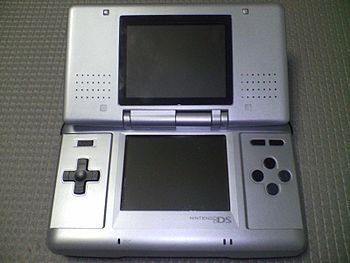Did you have a Mattell Auto Race (above, 1976) or a Mattell Handheld Football (1977) electronic game growing up? Coleco also made a number of handheld electronic games. (BTW, Coleco stands for Connecticut Leather Company!)
If you played handheld electronic games growing up, you helped start the mobile revolution we're enjoying today in ultra books, phablets, smartphones, wearables, and now the Internet of Things.
In the 80's we started flirting with mobile business devices... really no more than glorified calculators. It was really in the mid-90's that things picked up. Did you ditch your DayTimer for a Palm Pilot? Know what an Apple Newton was? Did you have the then-awesome Windows Mobile 6.5 phone?
After spending more than five years working with cloud computing, 18 consulting in IT, and a lifetime as a gadget geek I've participated in most of our major steps toward mobility over the last 30 years:
- Handheld electronic (and video) games
- Mobile phones
- Digital organizers
- Laptops
- Smart phones
- Netbooks
- Convertible touchscreens
- Tablets
- Phablets (smart phones with REALLY big screens)
- Wearables
- Mega and mini tablets
Yes. And No. On one hand, I have more computing power in my pocket than supercomputers had 20-years ago. Unfortunately, however, I still cannot talk to it in natural speech and have it respond likewise in a useful fashion.
We've actually gone backward somewhat. My Windows Mobile 6.5 had really useful voice commands that could control much of the functionality on the phone. It couldn't really talk back to me, but that was fine by me at the time.
Today, my Windows Phone 8.1 talks to me quite well. I love Cortana... I think she's amazing and is going to be a defining feature for Windows Phone. Unfortunately, however, she (and her wicked step-sister, Siri) is really only good at understanding my speech for the purpose of searching the web at this point. There are some voice commands, but it's not nearly at the level I had in Windows Mobile 6.5 - over four years ago.
So, how did the electronic games of yesteryear lead to a mobile revolution? The real trick was learning to miniaturize the technology. At first we had circuit boards with large transistors and LEDs... not LCDs... LEDs. Our "pixels" we're almost the size of an eraser on a pencil! And sound on the devices was comprised of beeps of various pitches and lengths.
 |
| MSI nMOS chip made in 1977 |
Fast forward 20 years to 2004... the release of the Nintendo DS. A marvel of modern computing and miniaturization, the DS and its successors the DSi, 2DS and 3DS have owned the handheld video gaming market for the last 10 years and show no sign of stopping despite continued competition from Sony with the PSP and more recently with the Vita. There were others - they were rapidly forgotten. The only credible threat to the Nintendo DS is likely the device we all keep in our pockets all day... our smart phones. With instant access to free and paid games and graphics and sound that now exceed those on most gaming systems, how long will it be before the era of the dedicated handheld gaming device ends?
In any case, I'd like to personally thank Mattel and Coleco for getting the ball rolling. I'm a life long gamer and am looking forward to seeing if the next 20 years is as exciting as the last 20 has been!
From gamers of all ages everywhere... thank you Mattel!








